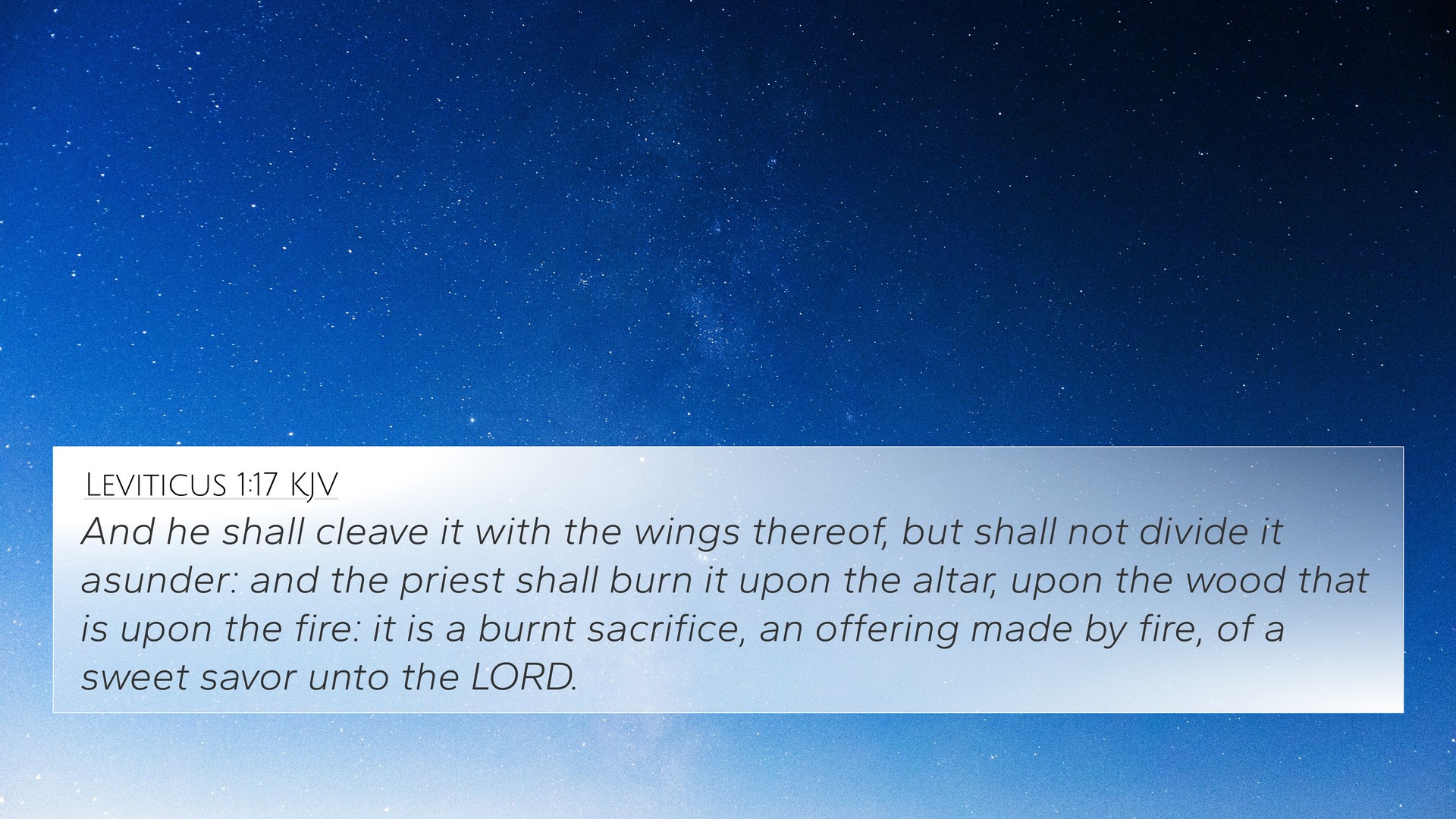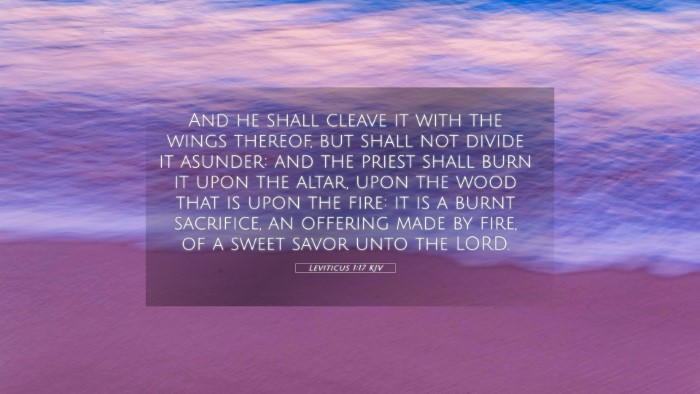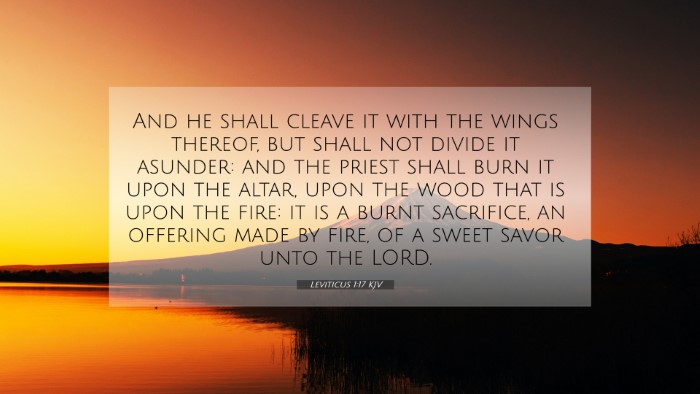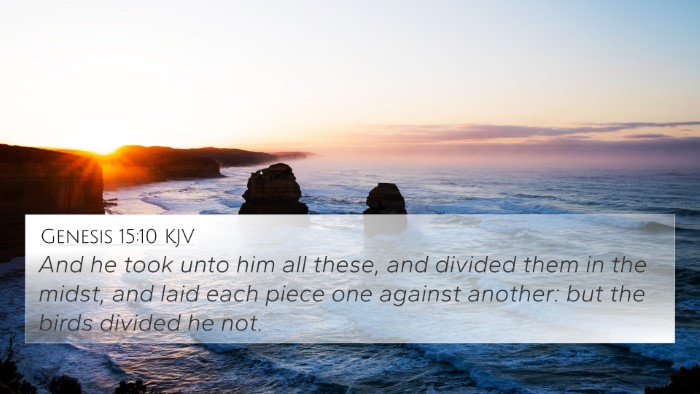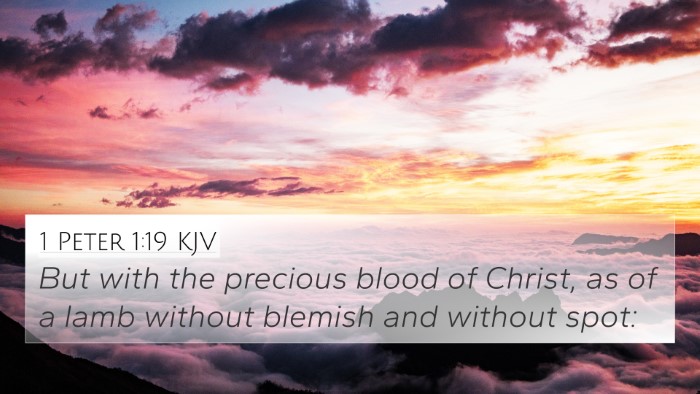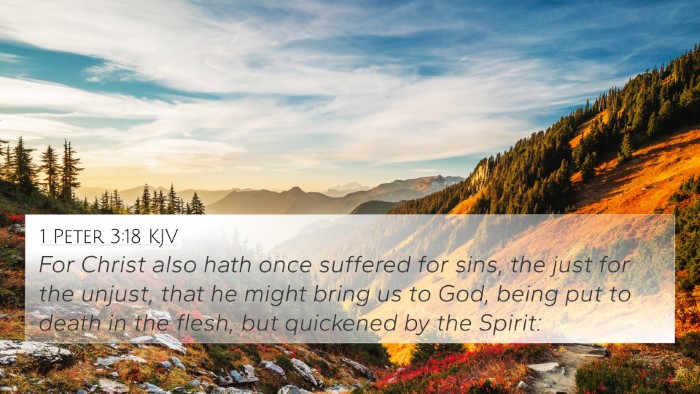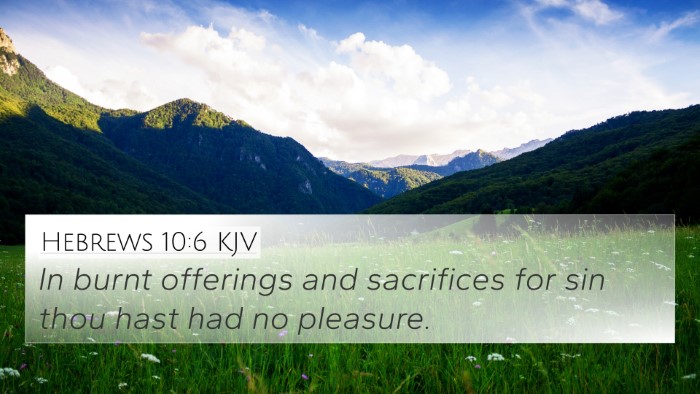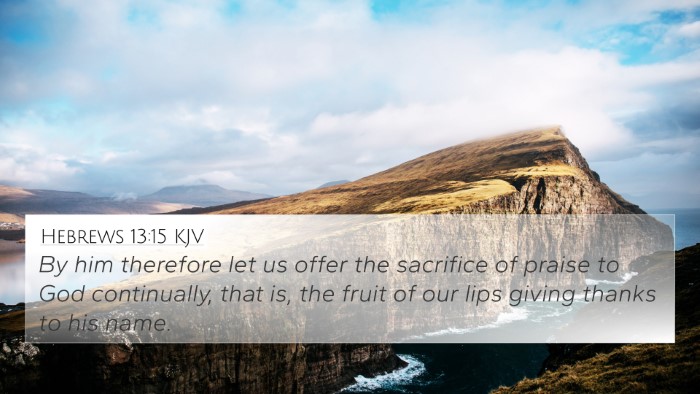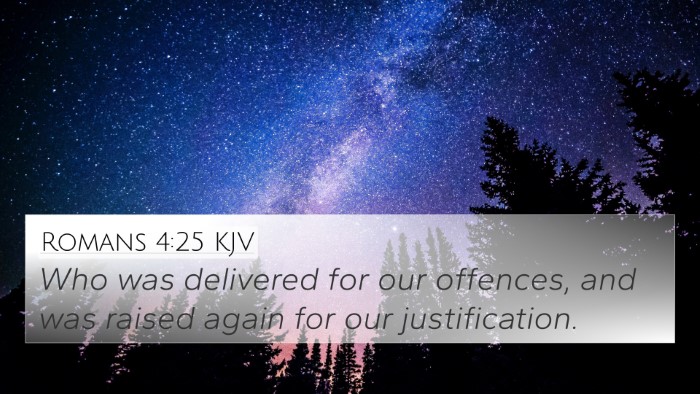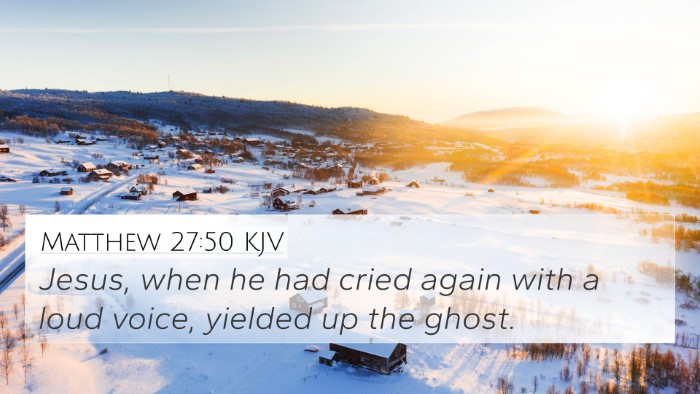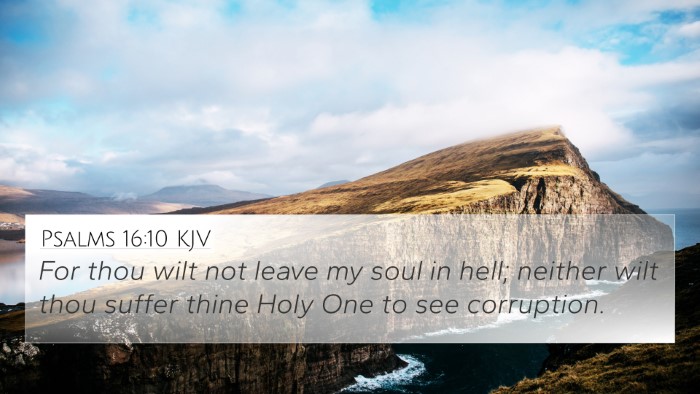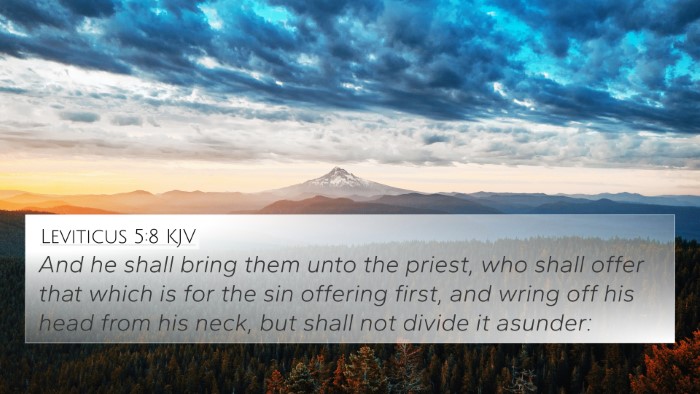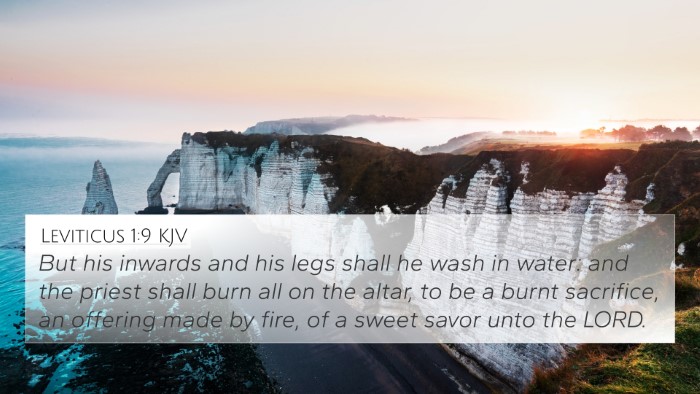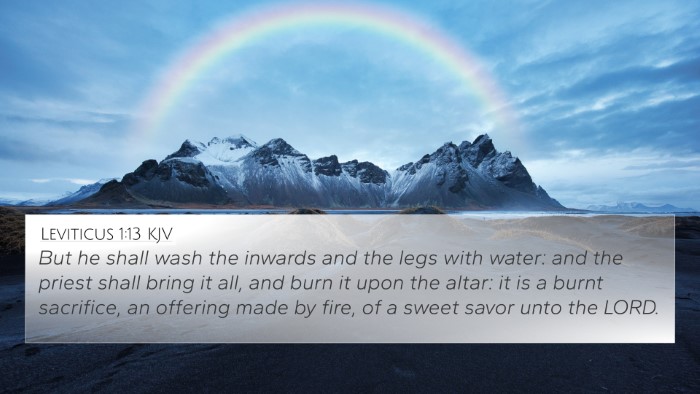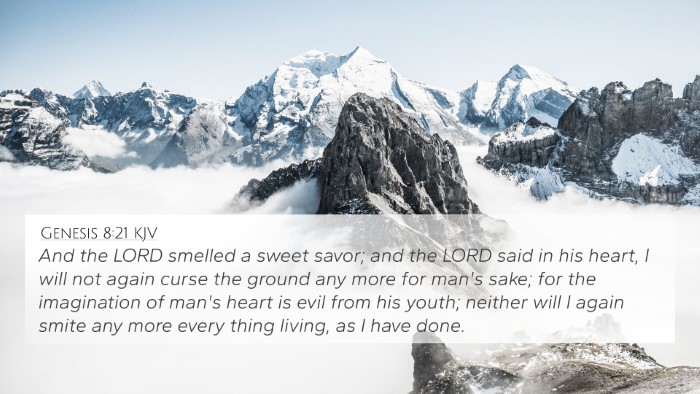Understanding Leviticus 1:17
Leviticus 1:17 states, "And he shall cleave it with the wings thereof, but shall not divide it asunder: and the priest shall burn it upon the altar, upon the wood that is upon the fire: it is a burnt sacrifice, an offering made by fire, of a sweet savour unto the LORD."
Summary of Insights
This verse is part of the instructions concerning the burnt offerings that are to be offered to God. A careful examination reveals important theological implications and practical applications.
Significance of "Cleave with the Wings"
Cleave with the wings refers to the proper method of preparing the sacrifice. The wings are not to be divided into two separate parts, highlighting the reverence and completeness required in the offering.
- Matthew Henry emphasizes the significance of presenting sacrifices in a manner that embodies commitment and obedience.
- Adam Clarke notes the intention of maintaining integrity in the sacrificial act, which is an essential aspect of worship.
The Role of the Priest
The priest's role is crucial in this verse, as he is tasked with burning the offering on the altar. This signifies the mediator's role in connecting the worshipers with God.
- Albert Barnes explains that priests serve as intermediaries who ensure the offerings are rendered acceptable to God.
- The act of burning the offering symbolizes purification and acceptance before God.
The Concept of a "Sweet Savour"
The term "sweet savour" indicates that the offerings are pleasing to God. This concept of divine acceptance is central in understanding sacrificial rites.
- Both Henry and Clarke agree that these offerings are intended to express devotion and atonement, establishing a vital relationship between humanity and the Divine.
Bible Cross References
Leviticus 1:17 relates to various other scriptures that enhance its meaning through cross-referencing. Here are some notable connections:
- Genesis 8:21 - Signifying God's acceptance of offerings and His promise not to curse the Earth again.
- Exodus 29:18 - Presenting the burnt offerings as a continuous fire for God’s pleasure.
- Leviticus 2:9 - The priest’s role in other offerings emphasizes the need for acceptable practices in worship.
- Numbers 28:2 - Instructions for the daily offerings which also highlight the priest’s responsibilities.
- Psalms 51:17 - The intention of the heart behind sacrifices is crucial to their acceptance by God.
- Romans 12:1 - A New Testament parallel calling believers to present their lives as living sacrifices.
- Hebrews 9:14 - The reference to Christ as the ultimate sacrifice encapsulating the essence of all earlier sacrifices.
Comparative Bible Verse Analysis
When analyzing Leviticus 1:17, it is fruitful to explore its implications in the broader context of scripture:
- Thematic Bible Connections: The sacrificial system outlined in Leviticus reflects a theme of atonement that continues through the New Testament with Christ's sacrifice.
- Inter-Biblical Dialogue: This verse not only speaks to the act of sacrifice but also establishes a dialogue about God’s expectations for holiness and worship.
- Cross-Referencing Biblical Texts: Understanding the connection between Leviticus and Hebrews enriches the conversation about the nature of sacrifices.
Tools for Bible Cross-Referencing
To deepen your study, several resources can aid in cross-referencing and thematic analysis:
- Bible concordance for locating related scriptures.
- Cross-reference Bible study guides that provide insight into interconnected themes.
- Comprehensive Bible reference resources that facilitate a deeper understanding of scripture relationships.
Conclusion
Leviticus 1:17 provides a profound glimpse into the sacrificial principles established in the Old Testament, which ultimately foreshadow the ultimate sacrifice of Christ. This verse requires careful consideration and provides ample opportunity for further exploration of biblical themes, connections, and interpretations.
